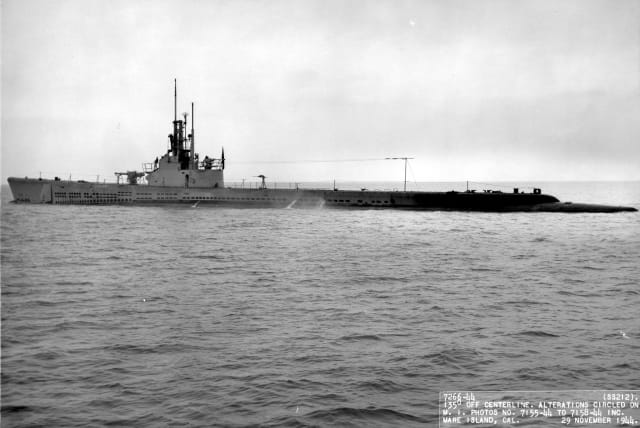Nazi-smuggling submarine found in Argentina causes international stir

Argentina's security ministry reportedly halted all investigations after receiving an independent report of the wreck.
After a suspected World War II submarine was discovered in Argentinian waters in 2022, confidential government documents secured by British investigative journalist Laurence de Mello present the possibility of a Nazi smuggling route created by the United States in partnership with Argentina, according to a May report.
The sub, which was found near the beaches of Costa Bonita and Arenas Verdes, has the potential to confirm theories that Nazis escaped to Argentina toward the end of the war.
However, de Mello explained that the Argentinian government has failed to provide any transparency in their investigative attempts to identify the sub. Rather, according to her, Argentina has refused to publicly identify the ship which cost the government $300,000 to investigate.
The investigation was meant to identify the sub’s origin, the date that it sank and whether there were any passengers of significant military interest aboard at the time of sinking.
Argentina's security ministry reportedly halted all investigations after receiving an independent report of the wreck, despite the United Nations Convention on the Law of the Sea legally requiring that the wreck be returned to the country of origin.
Investigating the wrecked submarine
Abel Basti, an investigative journalist and director of the Eslabon Perdido research group, conducted the initial inspection of the sub in March 2022.
A remotely operated vehicle was used alongside divers to capture photographs of the craft and its surrounding debris, which was spread across the seabed.
Divers were able to collect eight hours of footage and thousands of photos of the sub.
Dr. Martin Canevaro, President of the Professional Council of Naval Engineering in Argentina and Dr. Fabio Bisciotti, an international naval wreck identification and recovery specialist from the Lega Navale Italiana were recruited by Basti to investigate the wreck independently.
Biscotti’s report on the submarine
“Final impression - we found various pieces attributable to a submarine. The investigation needs to be revisited in depth to determine the actual make and model,” he wrote. "We categorically state it is not a ship.”
Biscotti, in communication with de Mello, later stated “Of course, my opinion remains unchanged. This wreck holds immense significance, showing a multitude of extraordinary features that deviate from those found in conventional ships or boats. Numerous characteristics strongly suggest its classification as a submarine, notably, a prominent conning tower deflector, a distinctive feature of U-Boats. Only through close examination can we determine its origin.“
“Conducting dives at this site presents substantial challenges due to the muddy seabed and turbid water. The position and relentless strong currents impede the natural clearing of mud and debris, severely restricting visibility. But it is imperative to undertake a comprehensive investigation to precisely ascertain the origin of this wreck.”
Some analysts have stated that the Argentine government has been unwilling to provide information on the submarine because of the upcoming 2023 presidential elections, the outlet said. Some have gone so far as to say that the Argentinian government is engaging in a cover-up.
The Simon Wiesenthal Center’s reaction
In an exclusive with de Mello, Dr. Ariel Gelbung, Director of The Simon Wiesenthal Center Latin America said, "In situations where the government remains silent on a specific issue, such as the recent discovery of what may be a WWII submarine, it is crucial for the government to respond to any concerns raised, regardless of any historical, political, or financial constraints. Failing to do so only fuels speculation and suspicion.
"Truth requires acknowledging both the positive and negative aspects of a story and maintaining objectivity when examining historical events, particularly those related to WWII. While no government is perfect, we cannot ignore the grave and ugly mistakes that have been made in the past."
Jerusalem Post Store
`; document.getElementById("linkPremium").innerHTML = cont; var divWithLink = document.getElementById("premium-link"); if (divWithLink !== null && divWithLink !== 'undefined') { divWithLink.style.border = "solid 1px #cb0f3e"; divWithLink.style.textAlign = "center"; divWithLink.style.marginBottom = "15px"; divWithLink.style.marginTop = "15px"; divWithLink.style.width = "100%"; divWithLink.style.backgroundColor = "#122952"; divWithLink.style.color = "#ffffff"; divWithLink.style.lineHeight = "1.5"; } } (function (v, i) { });

